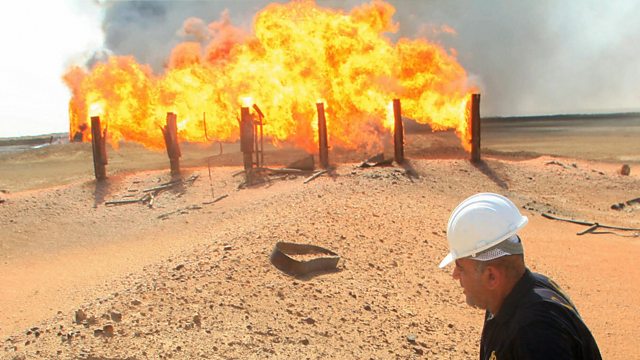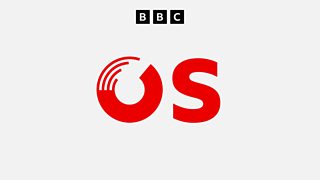Iraq gas flaring: The Rumaila oil field story
A Βι¶ΉΤΌΕΔ investigation reveals high levels of carcinogenic chemicals in communities near gas flaring.
A Βι¶ΉΤΌΕΔ News investigation has revealed that major oil companies are not declaring a significant source of greenhouse gas emissions - called gas flaring.
Gas flaring is the burning of excess gas released during oil production. It releases carbon dioxide, methane and black soot which pollute the air and accelerate global warming.
The Βι¶ΉΤΌΕΔ has also found high levels of potentially cancer-causing chemicals in communities in Iraq near oil fields where gas flaring is happening.
BP said: "We are extremely concerned by the issues raised by the Βι¶ΉΤΌΕΔ - we will immediately review those concerns."
On the leaked report on cancer in the Basra area, Iraq's Oil Minister said: "We instructed all the contracted companies operating in the oil fields to uphold international standards."
Jessica Kelly, the director of the Βι¶ΉΤΌΕΔ film, and Βι¶ΉΤΌΕΔ Climate and Science reporter Esme Stallard, explain what gas flaring is and their findings:
"Many children are suffering from leukaemia in these communities, that they blame on the gas flaring."
(Photo: An Iraqi oil worker walks by a gas flare in the southern Rumaila area. Credit: Essam Al-Sudani via Getty Images)
Duration:
This clip is from
More clips from Βι¶ΉΤΌΕΔ OS
-
![]()
Greenland's historic new airport
Duration: 08:23
-
![]()
Zoo searches for lifeguard for Baby Mini-Hippo
Duration: 02:23
-
![]()
Rescue dogs honoured at awards ceremony
Duration: 07:58






